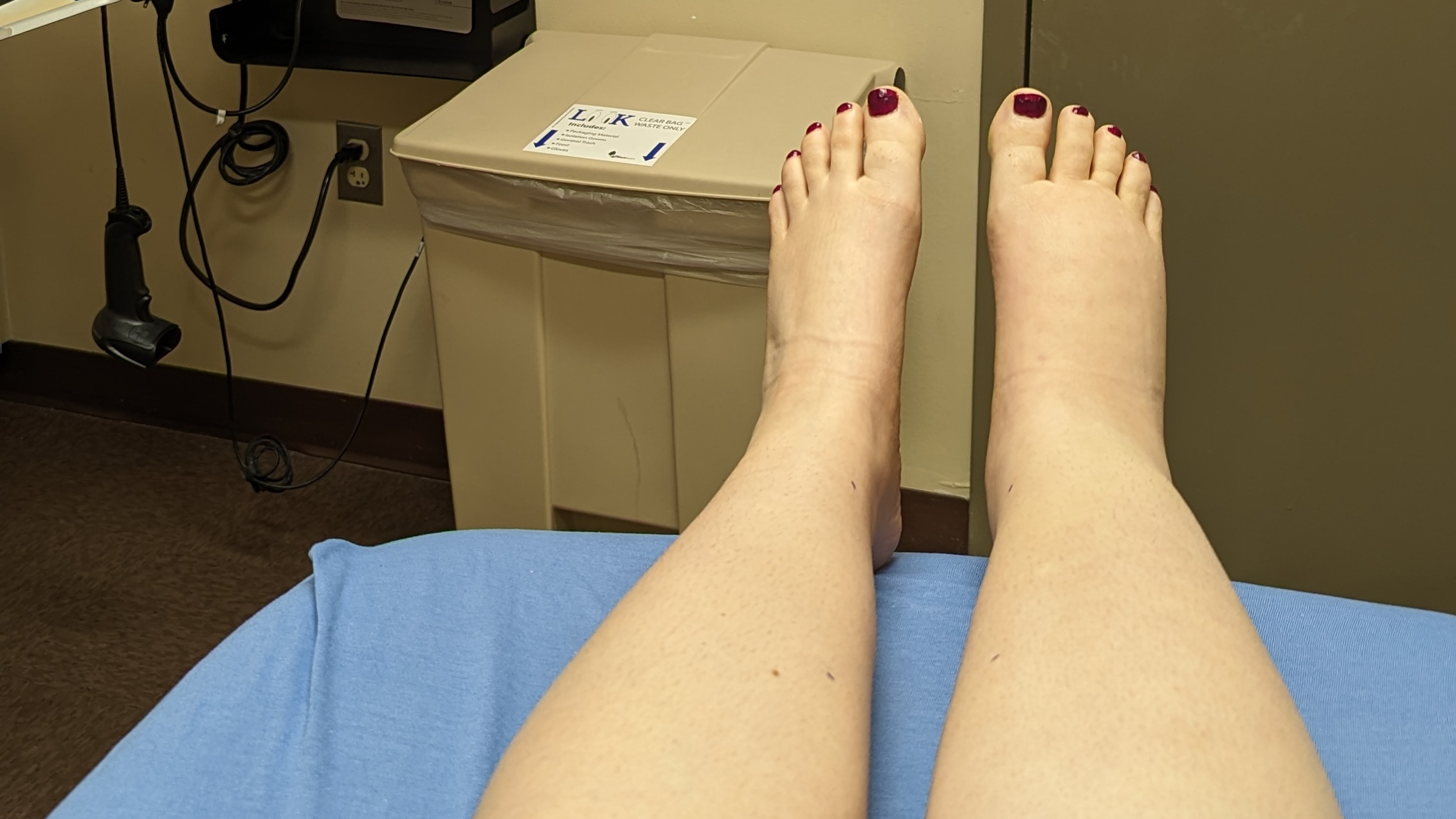“Lymph-what?”
Gaynor Leech had just been diagnosed with secondary lymphedema – a consequence of radiotherapy to treat her breast cancer – and all she could manage in response was to repeat that question over and over to her oncologist.
“It was a complete shock,” Leech recollects. “It took a while for me to get my head around what seemed like a massive change to my life. All I heard was ‘incurable,’ ‘lifelong’ – I did not hear that it could be managed or treated.”
For the next two years, Leech researched and read everything she could on lymphedema, collecting information and resources to combat the initial lack of education that she came across when first diagnosed.
Learning about lymphedema was empowering for the United Kingdom-based advocate, and she was moved to share the knowledge with others. In September 2013, she compiled her notes and launched a website, Lymph-What-Oedema, followed soon after by its accompanying social media accounts and online support group.
Organizing support
Leech had no expectations when she started her advocacy journey: Lymph-What-Oedema – named after her reaction to her own diagnosis – was born wholly from the impassioned desire to ensure nobody goes through the same angst that she had endured.
“I was very angry at the lack of information on lymphedema,” Leech explains.
“So many questions of this disease have been around for generations: Why is obtaining diagnosis so difficult? Why is it such a fight to get treatment? Why is treatment often denied or unavailable? Why is there no counselling? Why is it up to those of us that live with this condition to educate our healthcare professionals and fight to be heard?”
Running Lymph-What-Oedema has not only helped Leech find a sense of purpose in the wake of her diagnosis, but also to offer a safe environment for others living with lymphedema to connect and “have a rant” if needed.
“We provide a place where others don’t judge how you look or feel, a place to educate and inform,” says Leech. “A place where you become less isolated and make new friendships with people who understand what you are living with and the daily challenges you face.”
In addition to the main support group, Lymph-What-Oedema also runs a private support group for parents and families of children with lymphedema. The positive response to these groups has highlighted the overwhelming need for more support for lymphedema patients. “Wherever you live in the world, many of us who live with lymphedema feel the system has let us down, and therefore we have organized ourselves to support each other,” explains Leech.
“Between us globally we can operate 365 days of the year, 24/7. Sometimes it is as simple as having someone else to talk to who understands how you feel.”
From the computer screen to the community
Soon Leech was invited to networking meetings and training courses for local organizations, where she gained insight on how to grow, develop, and challenge herself within the voluntary sector.
Lymph-What-Oedema started to expand beyond the computer screen: with her newly honed skills and network connections, Leech began to attend community health events where she set up informational booths and gave talks on lymphedema. Oftentimes these events are someone’s first introduction to lymphedema, Leech notes.

Leech is an unpaid volunteer and had funded Lymph-What-Oedema with her own money – and time – for three years. The running costs became unsustainable to manage on her own, and so Leech reached out to a local organization called the Warwickshire Community and Voluntary Action, who helped Leech register Lymph-What-Oedema as a small independent non-profit.
Not only are the running costs alleviated through the non-profit designation, but the group’s volunteers are able to attend lymphedema conferences and maintain subscriptions to other lymphedema organizations.
It also helps towards financing events so the group can raise awareness of lymphedema and provide outreach and support to those living with lymphedema in their community.

Lymph-What-Oedema began by Leech asking a question (“Lymph-what?”), and although she has learned a lot since then, she’s still figuring out some of the answers along the way.
“Running a group like L-W-O has been a steep learning curve, and from time to time I make mistakes,” says Leech. “I learn quickly, apologize when needed, and put right the things I get wrong to the best of my ability.”
After five years, Leech says there are more supporters than dissenters. “Luckily, when I rant our lovely members pick me up through their kind words or virtual hugs.”
Oftentimes the pushback Leech encounters is, surprisingly, from medical professionals telling her she is not a professional and therefore cannot expect to be taken seriously. But Leech and Lymph-What-Oedema do not claim to provide medical advice and are careful to acknowledge sources and provide links to further reading for their members to explore on their own.
The non-medical, patient-driven support offered by the organization has proven valuable to folks with lymphedema within both the UK community and beyond.
“The most rewarding part of my work is the small achievements made by our members: when they get their GP to listen, or they make a tiny lifestyle change from one of our tips that makes a difference to their lives,” Leech shares. “Helping them become their own advocates.”
What does World Lymphedema Day mean to Gaynor Leech?
In the United States, March is celebrated as Lymphedema Awareness Month, but the United Kingdom recognizes Lymphoedema Awareness Week, which fell on March 3rd – 9th this year.
“In the UK, World Lymphoedema Day hasn’t officially been adopted, but I do feel that we must present a united front across the world,” explains Leech. “Many of us do celebrate and acknowledge the 6th of March.”

Lymphedema awareness is not confined to a mere week or month for Leech though, who spends incalculable hours running Lymph-What-Oedema both on and offline. Leech, who has volunteered in one form or another for the past forty years, is at her happiest when working with the organization and is inspired daily by the people she meets along the way.
“I have met over the last five years the most inspirational, hardworking, caring people – many of whom volunteer while living with their own long-term illness or disease,” Leech says. “They give their time freely, creatively sharing self-care tips, social self-care tips, improving the life of others.”
Leech enjoys talking to members of the global lymphedema community through social media, whom she celebrates as inspiring and knowledgeable people. “Sadly I will probably never get to meet them personally, but they are there with support and encouragement for the common cause and shared interest in lymphedema, making sure our voices are heard.”
It’s patient voices that are, to Leech, the key to awareness.
“I often hear from those that live with lymphedema that nobody listens,” says Leech. “My answer to that is tell your story – it is the best way to be proactive. Spread the word: Lymphedema exists. We exist.”




Leave a Reply